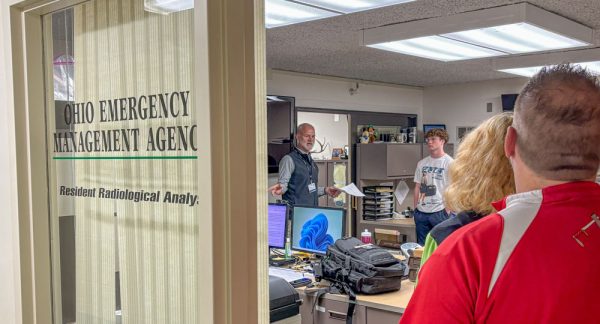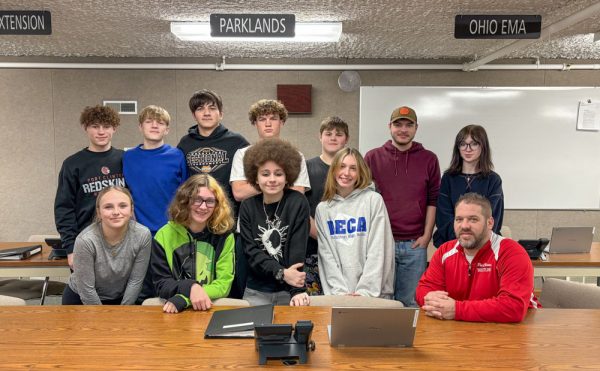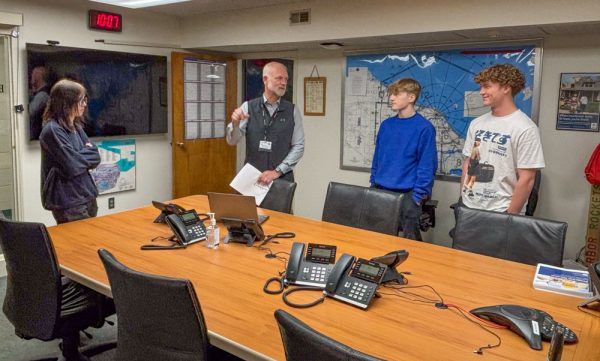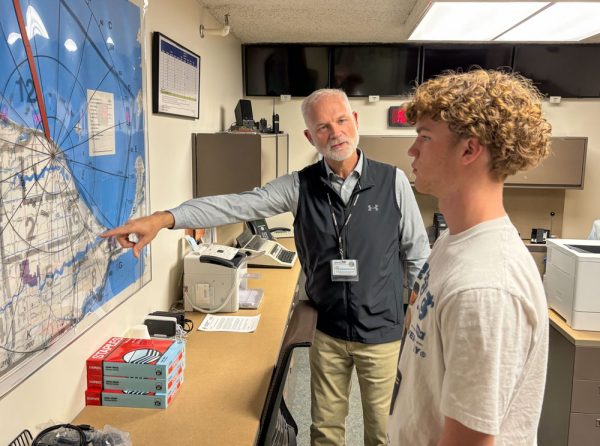Student Boot Camps Give County Students a Broader View of their Futures
Posted on: March 20, 2024
(Article via The Beacon)
When Port Clinton High School (PCHS) students stepped into the Emergency Management Agency (EMA) operations center in the basement of the Ottawa County Courthouse on March 13, it felt like a scene from a movie. Long tables, neatly arranged across the room, were equipped with computers and phones. Above them hung signs listing the names of the various departments that gather there during formal meetings and sudden county emergencies.
“I didn’t expect any of this,” said PCHS sophomore Brody Schierberg. “I didn’t expect the operations center to be like this.”
The students visited the EMA center as part of the Student Boot Camps hosted by Ottawa County Business Advisory Council. The camps give students the opportunity to learn how their particular skillsets can be utilized in unique ways in the workforce.

Prior to attending a Student Boot Camp, the students are given aptitude tests to identify their skills and interests, and then they are paired to a Boot Camp that meets their needs. Depending on their aptitude test results, students attended businesses or organizations in the fields of advanced manufacturing, the arts, healthcare, or computers and technology.
The students who visited the EMA office tested high in technology aptitude. Later that day, they also visited the Ottawa County Sheriff’s Office. At the EMA office, EMA Director Fred Petersen gave the students a tour of the center and talked to them about the ways technology impacts public safety.
They learned that EMA staff utilize both modern Chromebooks and old-school amateur radio, and they visited the room where important decisions are made during public emergencies. Some of the emergencies addressed in the room are Davis Besse Nuclear Power Station situations, Level Three snowstorms, tornados and train derailments.

“During emergencies, this is our assessment room,” Petersen said. “We decide things like whether we should shelter in place or evacuate.”
When emergencies occur, the EMA team gathers to make decisions, regardless of the time of day or seriousness of the situation.
“When the tornado sirens go off, we all show up here. Everybody else goes to their basements,” said EMA Administrative Assistant Beth Greer.
The tour was eye-opening for the students.

“I learned that a lot of little things have to come together in an emergency,” said PCHS sophomore Megan Zgodzinski. “I saw a lot of behind-the-scenes things I didn’t know about.”
Sometimes, the EMA staff must plan ahead for the unexpected.
“I thought it was interesting that there is a lot of communication about the solar eclipse,” said PCHS sophomore Ginger Blackert.
PCHS CBI instructor Mike Miller said the EMA tour provided a unique viewpoint on employment opportunities for students geared toward technology professions.
“Especially at this age, they don’t really know how things happen and what parts and pieces have to move,” he said. “With Davis Besse in our backyard, they got a lot of information that kids in other counties wouldn’t learn. They got to see the working relationship between the government agencies.”

OCIC Manager of Workforce and Career Exploration, Katherine Adams, said five of the six school districts in Ottawa County participated in the Student Boot Camps. The program allowed students to think broader about their future opportunities.
“They may think that a job in the arts is just about painting. They may not realize they could work in something like social media. They may not realize how much technology is used in law enforcement,” Adams said. “There are lots of ways they can use their talents and skills. There are practical, everyday applications.”



